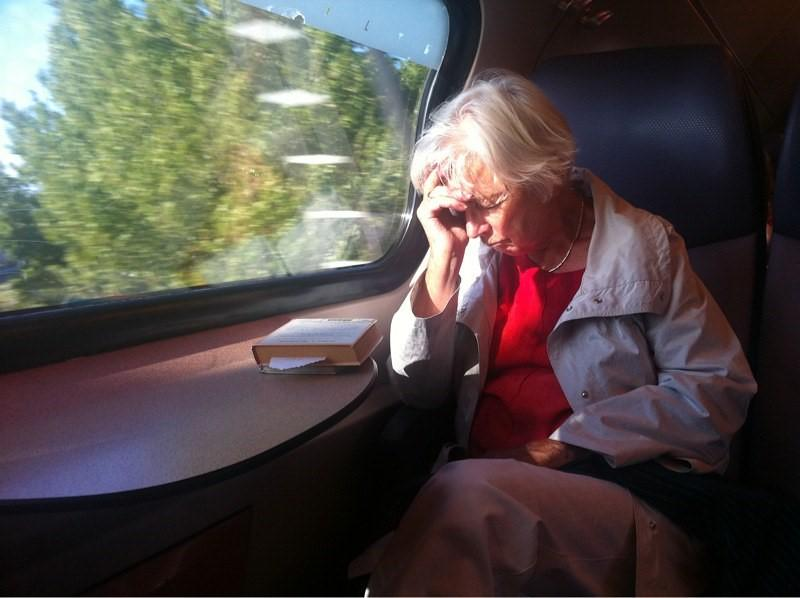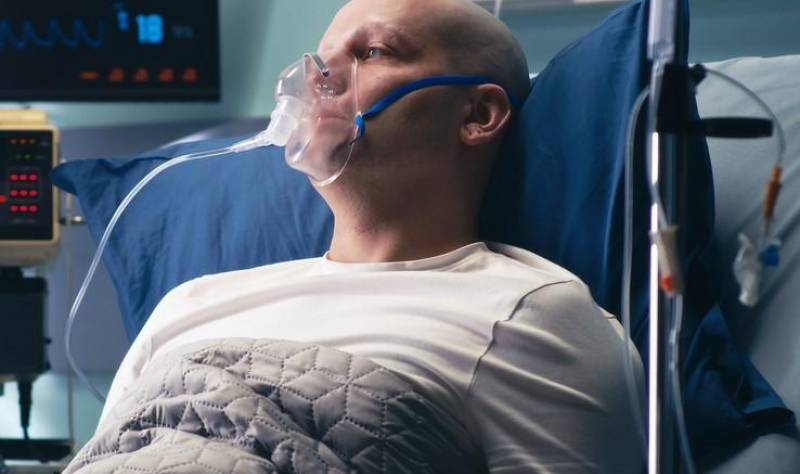Inside the race to unlock the mysteries of Long COVID


Is Long COVID caused by virus fragments lurking in patients’ bodies long after they test negative? Perhaps it is inflammation, or an immune system that has run amok? Or maybe the culprit is a combination of these — or other factors?
Nearly three years after COVID-19 first surfaced, scientists are striving to understand why millions of Americans continue to experience debilitating symptoms months after first being infected.
Scores of ongoing research projects aim to answer these questions and help guide the development of treatments for symptoms that include brain fog, fatigue, heart palpitations, headaches, insomnia, and more. There is no approved medication for the constellation of symptoms that comprise Long COVID. Instead, patients are given various therapies and coping strategies.
“We are getting 150 referrals a month, a year and a half after opening,” said Dr. Bruce Levy, medical director of Brigham and Women’s Hospital’s Lung Center, which houses the hospital’s Covid Recovery Center in Boston.
“We have seen over 2,500 people come in for care, and it seems almost insatiable the numbers of people asking for help,” he said.
The Brigham is leading a consortium of seven Boston area hospitals that is part of an ambitious national effort known as the RECOVER studies, aimed at finding answers to the mystifying condition. More than 17,000 patients are expected to be enrolled nationwide by the end of this year, including roughly 900 from the Boston area, and local scientists are still recruiting participants.
Research published last month by another Brigham scientist, pathologist David Walt, revealed fragments of the virus that causes COVID still circulating in the blood of more than half of the 63 Long COVID patients they studied. These spike protein fragments were detected up to 12 months after the patients initially tested positive for COVID.
The findings suggest the virus may persist in the body, undetected by conventional tests. But Walt’s team was able to detect the proteins after developing a special test.
Now they are trying to replicate the findings in samples from hundreds more Long COVID patients. If that pans out, Walt and colleagues hope to ask some patients in the RECOVER studies to participate in a trial of an antiviral medication, such as Paxlovid, to see if it clears the virus proteins in their bodies and eases their Long COVID symptoms, versus a separate group of Long COVID patients who receive a placebo pill. Currently, Paxlovid is not authorized for treatment beyond five days or for treatment of Long COVID.
“The hope is that . . . we will use the blood test to identify those patients who would benefit from a course of antiviral therapy,” Walt said.
There’s a tantalizing clue that longer-term treatment with antivirals may benefit some patients. Levy said some of his Long COVID patients who were reinfected with COVID and took Paxlovid for their current infections found that some of their Long COVID symptoms eased while taking the antiviral, but returned once the five-day course was completed.
Among the Long COVID patients hoping for answers and treatments is Catalina Azuero, who has endured crushing fatigue — “bone-deep exhaustion,” as she describes it — and brain fog since being infected in early May.
The 44-year-old Boston mother of 7-year-old twins hasn’t been able to return to her high-powered job as a civil litigation lawyer because even simple routines of everyday life — driving one child to soccer practice and another to music lessons, then cooking dinner — totally wipe her out.
“For someone who has been an over achieving person, that’s hard,” Azuero said. “And it’s hard on my kids. They are like, ‘Mama when are you going to stop being tired?’”
Therapy at Brigham’s Covid Recovery Center has helped her learn to pace herself and ease some of the fatigue. But focusing on complex, legal issues, the way she needs to for work, remains a challenge.
“I would lose words midsentence,” she said. “Not the best for motions and hearings for my job.”
Dr. Serena Spudich, a neurology professor at Yale University School of Medicine who runs a Long COVID clinic, is working on research aimed at patients like Azuero, who still struggle with brain fog, or who are coping with other nervous system issues, like persistent headaches or the sensation that their skin is burning.
Spudich and her colleague, Dr. Shelli Farhadian, are enrolling Long COVID patients in a COVID Mind Study that will use brain imaging, cognitive tests, blood samples, and spinal fluid to try to pinpoint which brain signals may be impaired from Long COVID, and whether it’s chronic inflammation or an immune system attack triggered by the COVID infection, or lingering virus fragments, that may be the culprits.
“No one has found a slam dunk, and people have been working on this for a couple of years,” Spudich said.
“I have so much empathy for people who are struggling, and we need answers quickly, but it is really challenging to study,” Spudich said. That’s because Long COVID affects so many areas of the body and there are likely different explanations behind the myriad symptoms. Scientists are realizing that finding answers, or even treatments, for some symptoms likely will not help all patients.
Doctors who care for Long COVID patients say they have seen no clear pattern in who gets better or why, but that many of their patients do experience an easing of symptoms over time.
“We have had patients years out from their infection get much, much better,” said Dr. Benjamin Abramoff, an assistant professor of physical medicine and rehabilitation at the University of Pennsylvania’s Perelman School of Medicine.
Abramoff directs the university’s Long COVID clinic, which has treated 1,600 patients since opening in June 2020. He coauthored a detailed blueprint for health care providers on how to manage patients’ many Long COVID symptoms, from breathing exercises for those still suffering from shortness of breath, to suggesting compression stockings for those plagued by dizziness when standing up.
“I tell [patients] we will keep working with them and as there is new research we will keep evaluating their treatment plan,” he said. “That gives them hope.”
Azuero, the Boston mother who is slowly improving, said she is fortunate to have supportive friends and family. And she realizes doctors and researchers are working hard to find answers and treatments.
But she is pragmatic. She does not envision a “magical solution” anytime soon.
“You are really at sea with this bizarre disease that has left you without a lot of resources,” she said.
Hearing the experiences of patients like Azuero, their frustrations and their hopes, is what drives Walt, the Brigham researcher who hopes to soon test an antiviral on some Long COVID patients.
“If our research can lead to better outcomes for patients,” he said, “it’s like you are winning the lottery here.”
Kay Lazar can be reached at kay.lazar@globe.com Follow her on Twitter @GlobeKayLazar.



